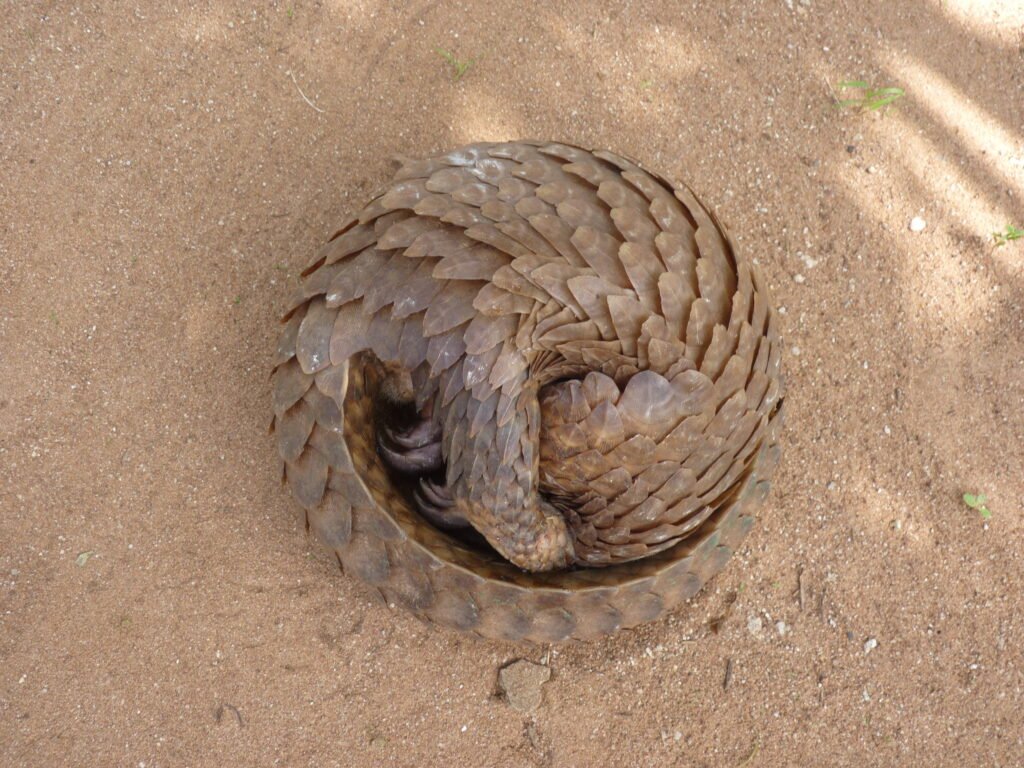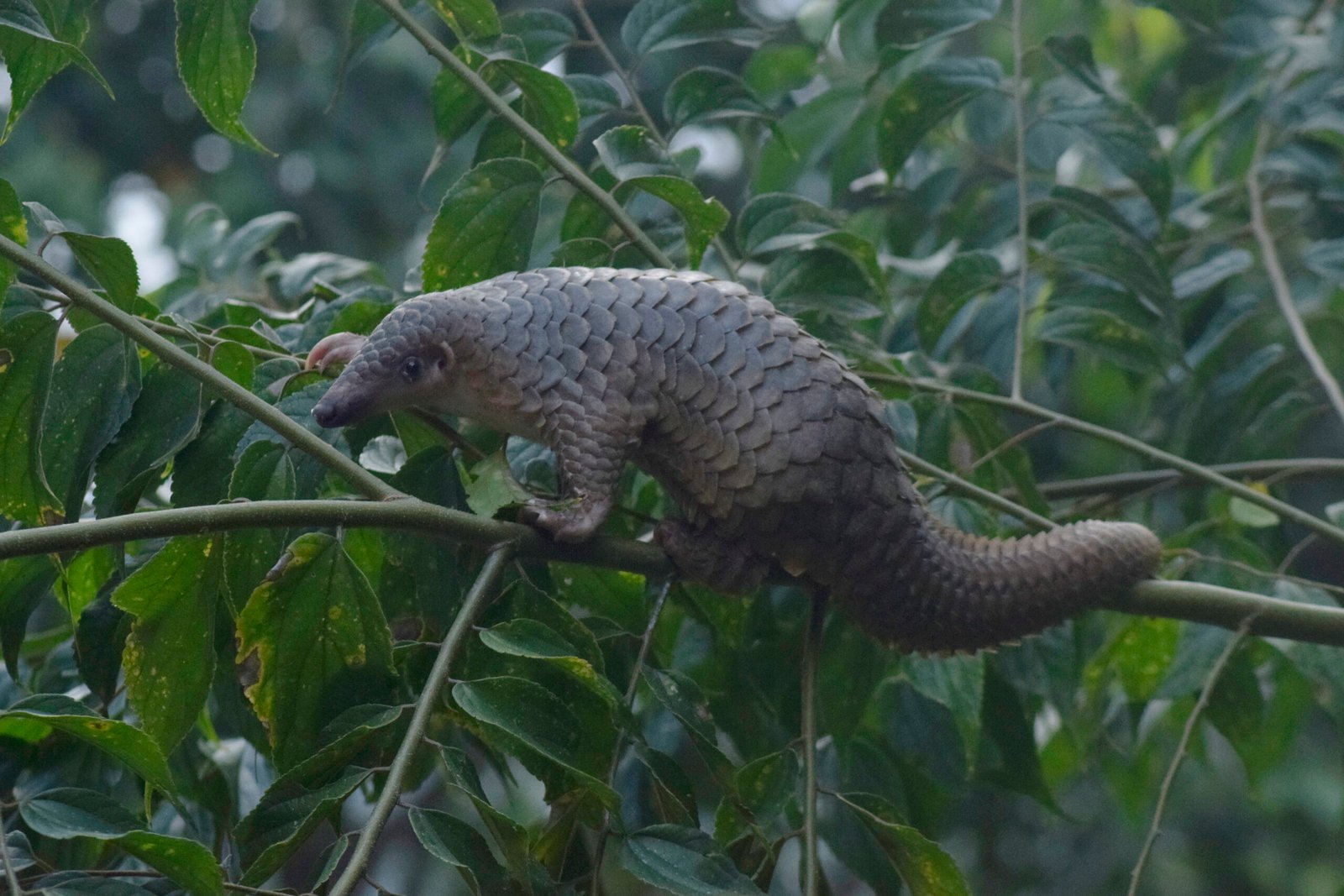DD Animal News: 21 June 2025: The world’s only truly scaly mammal is teetering on the edge of extinction. Now, U.S. wildlife officials are proposing new protections that could help the pangolin survive.
This week, the U.S. Fish and Wildlife Service announced a proposal to list seven pangolin species under the Endangered Species Act (ESA)—a landmark law designed to safeguard species most at risk of disappearing. While pangolins aren’t native to the U.S., this listing would significantly tighten trade restrictions on pangolin parts, which are commonly smuggled for use in traditional medicine and luxury food markets.
The pangolin, often described as a shy, nocturnal insect-eater, is dubbed “the most trafficked mammal in the world,” largely due to its keratin-rich scales and meat. Despite bans on commercial trade, law enforcement agencies continue to seize tons of pangolin scales, representing thousands of illegally killed animals.
“Pangolins are on the razor’s edge of extinction,” said Sarah Uhlemann, international program director at the Center for Biological Diversity. “We need to completely shut down any U.S. market for their scales.”
Seven Species, One Global Crisis

The proposed listing includes four pangolin species from Asia—the Chinese, Indian, Sunda, and Philippine pangolins—and three from Africa: the white-bellied, black-bellied, and giant pangolins. An eighth, the Temminck’s ground pangolin, is already listed as endangered in the U.S.
These animals are highly vulnerable to poaching due to their natural defense mechanism: when threatened, pangolins curl into a tight ball, making them easy to capture. Their shy nature and slow reproduction rates make population recovery extremely difficult once numbers decline.
U.S. officials also note that habitat loss from climate change and deforestation is accelerating the pangolin’s decline. By listing the species as endangered, the government aims to cut off demand within U.S. borders and support international conservation efforts.
“Proceeds from the illicit sale of pangolins and other imperiled species often fund serious crimes, including drug and arms trafficking,” said the U.S. Fish and Wildlife Service in a statement.
Why the Endangered Species Act Matters
The Endangered Species Act, passed in 1973, protects over 2,000 species globally and has been instrumental in preventing extinctions, including that of the bald eagle and gray wolf. Though some species, such as the polar bear and penguins, don’t live in the U.S., they have been granted ESA protections because of America’s impact on global biodiversity.
If the listing is finalized, trade in pangolin parts—such as skins, scales, or trophies—would be prohibited in the U.S., except for tightly controlled scientific or conservation purposes. The law would also support efforts to prosecute wildlife smugglers and disrupt broader criminal networks.
“We may never see one in the wild ourselves, but our actions here in the U.S. still matter,” said animal rights advocate and policy analyst Teresa Barnes. “This is about choosing whether or not we help preserve a species that’s been around since the dinosaurs.”
According to the World Wildlife Fund, pangolins are targeted for their scales, despite no proven medical benefits, and all eight recognized species are threatened with extinction. Without stronger legal protections and international cooperation, experts warn that pangolins could vanish within our lifetime.
Politics, Policy, and Pangolins
Environmental laws in the U.S. often spark debate, especially when balancing conservation with development. While some lawmakers call for changes to the Endangered Species Act, others argue it’s more vital than ever as wildlife faces growing threats from climate change and illegal trade.
In 2020, the U.S. Fish and Wildlife Service agreed to resolve delays in listing decisions. Pangolins were among the species prioritized. The current proposal builds on that promise and reflects the pressure applied by the Center for Biological Diversity, which has long pushed for stronger legal protection.
A Last Chance for an Ancient Creature

Pangolins have survived for millions of years, yet human exploitation has pushed them to the brink in just a few decades. Once common across forests and savannas, they’re now vanishing under the weight of global demand.
The U.S. proposal to list them as endangered won’t solve everything—but it sends a clear message: even the quietest, most misunderstood creatures deserve protection. It gives conservation groups stronger tools and raises awareness where it’s urgently needed.
Saving pangolins means ending illegal trade, supporting local communities, and choosing compassion over profit. Their future isn’t gone yet—but time is running out.






